Scott C. -H. Huang
APPFLChain: A Privacy Protection Distributed Artificial-Intelligence Architecture Based on Federated Learning and Consortium Blockchain
Jun 26, 2022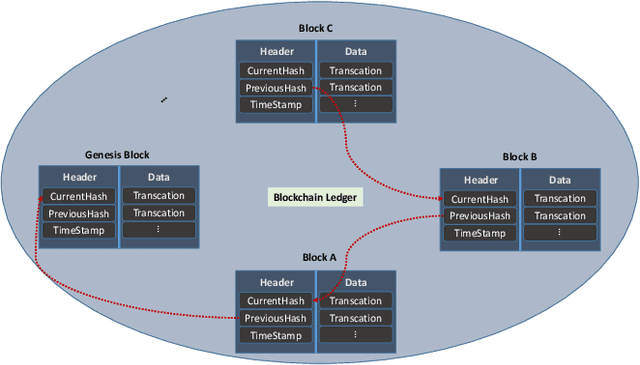
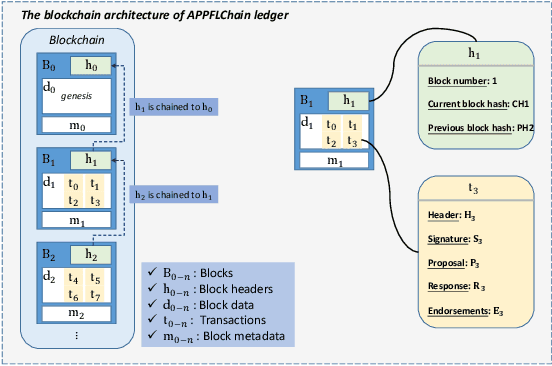
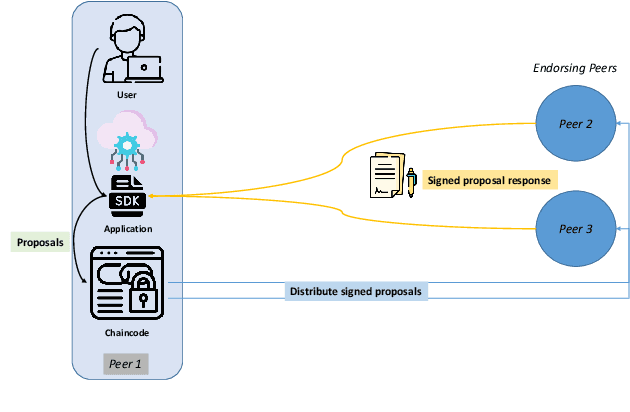
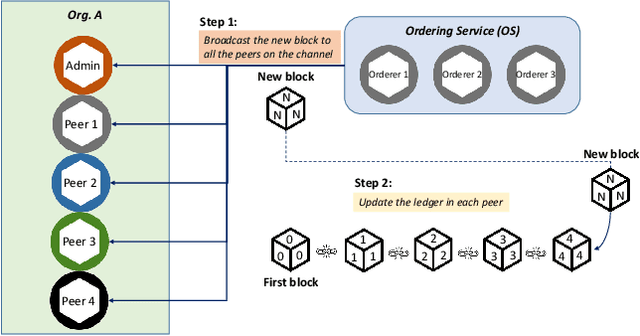
Abstract:Recent research in Internet of things has been widely applied for industrial practices, fostering the exponential growth of data and connected devices. Henceforth, data-driven AI models would be accessed by different parties through certain data-sharing policies. However, most of the current training procedures rely on the centralized data-collection strategy and a single computational server. However, such a centralized scheme may lead to many issues. Customer data stored in a centralized database may be tampered with so the provenance and authenticity of data cannot be justified. Once the aforementioned security concerns occur, the credibility of the trained AI models would be questionable and even unfavorable outcomes might be produced at the test stage. Lately, blockchain and AI, the two core technologies in Industry 4.0 and Web 3.0, have been explored to facilitate the decentralized AI training strategy. To serve on this very purpose, we propose a new system architecture called APPFLChain, namely an integrated architecture of a Hyperledger Fabric-based blockchain and a federated-learning paradigm. Our proposed new system allows different parties to jointly train AI models and their customers or stakeholders are connected by a consortium blockchain-based network. Our new system can maintain a high degree of security and privacy as users do not need to share sensitive personal information to the server. For numerical evaluation, we simulate a real-world scenario to illustrate the whole operational process of APPFLChain. Simulation results show that taking advantage of the characteristics of consortium blockchain and federated learning, APPFLChain can demonstrate favorable properties including untamperability, traceability, privacy protection, and reliable decision-making.
Knowledge Distillation with Representative Teacher Keys Based on Attention Mechanism for Image Classification Model Compression
Jun 26, 2022

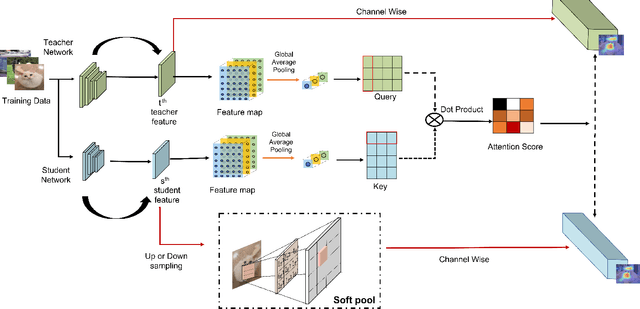

Abstract:With the improvement of AI chips (e.g., GPU, TPU, and NPU) and the fast development of internet of things (IoTs), some powerful deep neural networks (DNNs) are usually composed of millions or even hundreds of millions of parameters, which may not be suitable to be directly deployed on low computation and low capacity units (e.g., edge devices). Recently, knowledge distillation (KD) has been recognized as one of the effective method of model compression to decrease the model parameters. The main concept of KD is to extract useful information from the feature maps of a large model (i.e., teacher model) as a reference to successfully train a small model (i.e., student model) which model size is much smaller than the teacher one. Although many KD-based methods have been proposed to utilize the information from the feature maps of intermediate layers in teacher model, however, most of them did not consider the similarity of feature maps between teacher model and student model, which may let student model learn useless information. Inspired by attention mechanism, we propose a novel KD method called representative teacher key (RTK) that not only consider the similarity of feature maps but also filter out the useless information to improve the performance of the target student model. In the experiments, we validate our proposed method with several backbone networks (e.g., ResNet and WideResNet) and datasets (e.g., CIFAR10, CIFAR100, SVHN, and CINIC10). The results show that our proposed RTK can effectively improve the classification accuracy of the state-of-the-art attention-based KD method.
 Add to Chrome
Add to Chrome Add to Firefox
Add to Firefox Add to Edge
Add to Edge